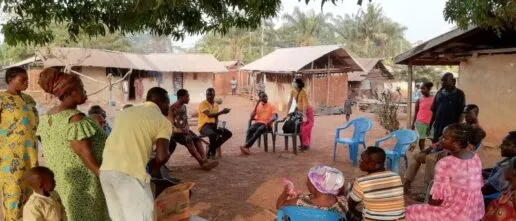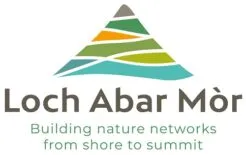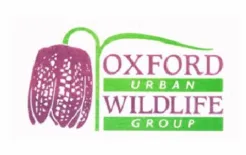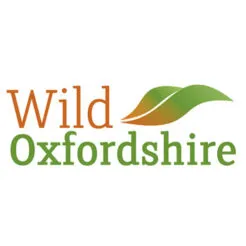Mark is Research Fellow in Environmental Social Science who is interested in addressing inter-linked social and environmental challenges through interdisciplinary research. He is broadly engaged with research that investigates issues of well-being, inequality and justice with respect to climate change and natural resource governance. He is interested how different values and knowledges interact with institutional and cultural contexts in driving the governance decisions which underpin environmental and social change across a range of scales.
Related Research Themes

Human health and wellbeing
Exploring, understanding, and determining those aspects of nature which directly contribute to improvements in physical and mental health and wellbeing.

Society
Encompassing the governance and socio-cultural dimensions of nature recovery.
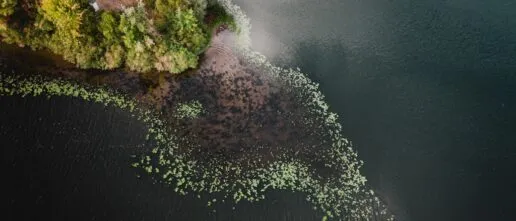
Ecology
Testing the effectiveness of different ecological approaches for nature recovery to support biodiversity and the delivery of ecosystem services such as climate change mitigation and adaptation.
Related Projects

Healthy Ecosystem Restoration in Oxfordshire
Developing the local Oxfordshire landscape as a case-study, nature-recovery laboratory and community of practice.

From greening to wellbeing: Multi-scale analysis of green infrastructure and mental health at population level within the UK
A mixed methods investigation into how green infrastructure influences mental health across diverse communities and landscapes in the UK

Participatory governance of nature recovery and Nature-based Solutions.
Co-designing knowledge, evidence, and practitioner guidance for engagement processes that enhance the delivery of benefits for people, nature, and climate

Risky Nature Recovery
How can the governance of nature recovery embrace uncertainty to support transformative change?

Community values in accessible urban green spaces and planning: An Oxford case.
Investigating community values in accessible urban green spaces and assessing the equity of urban green governance across different socio-economic areas of Oxford.
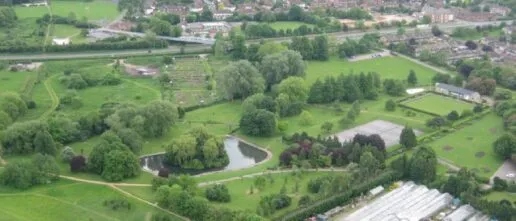
Equitable distribution of nature-rich accessible green space: An Oxfordshire case study
Investigating the distribution of freely accessible green space in Oxfordshire in relation to socio-economic status to inform local green space planning.

Social ecological mapping for nature recovery
Developing social ecological maps for land use planning, investment and inclusive decision-making.
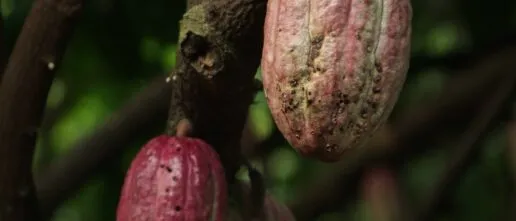
Institutional innovations for nature recovery
A power-sensitive and multi-level analysis of institutions involved in pursuing landscape scale nature recovery and their intersection with questions of equity and justice in the UK and Ghana.

Governing sustainable finance for effective and equitable nature recovery
Developing a typology of financing models for nature recovery and assessing how different modalities of finance shape dynamics of equity, collaboration and conflict in nature recovery.

Innovative methods to connect and communicate between disciplines
Establishing evidence-based methods to bridge scientific fields for nature recovery.

Database of Scottish nature recovery projects
We will build a database of all nature recovery projects and organisations in Scotland.
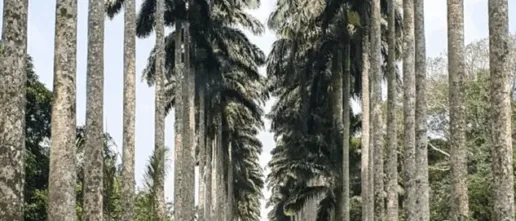
Urban green space, values and wellbeing in urban Ghana
Exploring how urban green space is (dis)valued in Accra and Kumasi, and the potential (dis)benefits to subjective wellbeing

eDNA, environmental knowledge and biodiversity governance
In what ways are novel environmental DNA techniques changing how environments are monitored, understood and governed?
Related Outputs
Equity in unilateral value chain policies: A monitoring framework for the EUDR and beyond
Unilateral value chain policies have recently emerged as a key strategy of international land use governance. They’re part of a broader trend towards trade-based environmental policies, from corporate due diligence to sustainability certification and trade moratoria, that has been critiqued for reinforcing inequities in global trade. Such critique has been heightened by the current rise […]
The Nattergal Report on Stakeholder Engagement Best Practice for Landscape-scale Nature Recovery Projects
The Nattergal Report on Engagement Best Practice for Landscape-scale Nature Recovery Projects. Developed for our Boothby Wildland Landscape Recovery project, and funded by DEFRA, the report was led by the Countryside and Community Research Institute (CCRI) at the University of Gloucestershire and the Leverhulme Centre for Nature Recovery and Agile Initiative projects at Oxford University, […]
Unpacking the politics of Nature-based Solutions governance: Making space for transformative change
Pre-print paper on the politics of Nature-based Solutions governance for transformative change. This paper finds that dominant framings can end up undermining, rather than supporting, the changes that are needed for transformation to happen. Techno-centric and market-oriented approaches, perceptions of risk and uncertainty, and “democracy washing” risk perpetuating power imbalances and superficial participation. Making space […]
Unpacking the politics of Nature-based Solutions governance: Making space for transformative change
Nature-based Solutions (NbS) have gained global attention for their transformative potential to simultaneously address biodiversity loss, climate change, and human well-being. However, there are concerns that dominant framings reinforce vested interests, marginalise alternative perspectives, and lead to persistent patterns of inequality and injustice. While participatory governance of NbS is widely acclaimed to support more equitable […]
Nature-based Solutions Knowledge Hub
The Nature-based Solutions Knowledge Hub is an integrated one-stop resource to guide users through the process of governance, designing and funding Nature-based Solutions (NbS), and monitoring the outcomes. The Hub is aimed at those involved with NbS in the UK, though much of the guidance would also be applicable in other locations. Visit the Knowledge […]
Summary of thesis: Recognitional equity in access to and planning of urban green spaces: How socio-economic deprivation shapes community values and participation in place-based governance.
Equity of access to, and planning of, Urban Green Spaces (UGS) is an area of growing interest in a period in which urban greening is intertwined with equity issues in socially diverse urban centres. While efforts to widen communities’ spatial access to UGS and procedural representation in their planning through more inclusive place-based governance arrangements […]
Oxfordshire’s greenspace-deprived neighbourhoods
A new report which has just been launched explores Natural England’s Green Infrastructure data to identify neighbourhoods in Oxfordshire experiencing both socio-economic deprivation and poor provision of accessible greenspace, with a view to these neighbourhoods being prioritised in terms of planning, allocation of funding, and effort for improving quality and quantity of accessible greenspace.
Just nature recovery: A framework for centring multispecies and multi-dimensional justice in land management
Highlights Justice considerations can be overlooked in the planning and delivery of nature recovery projects. Multispecies justice and multi-dimensional justice offer alternative framings of justice and how it can be achieved. Integrating MSJ and MDJ approaches can inform nuanced analyses of nature recovery projects. We consider the different justice concerns in a range of examples […]
Understanding actors’ power through conflict dynamics: Insights from small-scale mining on cocoa farms
Artisanal and small-scale gold mining at the forest-farm nexus remains a contentious issue due to the diversity of actors and competing interests surrounding it. Using the actor-centered power (ACP) approach, it has been theorized that actors leverage power resources, combining coercion, (dis-)incentives, and dominant information, to influence less powerful actors to act against their preferred […]
World Series Vol. 43 – International Forests Governance: A critical review of trends, drawbacks, and new approaches – chapter
International Union of Forest Research Organizations has published a new report under its Science-Policy Programme: “International Forests Governance: A critical review of trends, drawbacks, and new approaches” The scope of this new assessment includes an update on governance changes since 2010, including actors and instruments; an overview of the forest-related finance landscape; an identification and […]
Interdisciplinary Catalyst Activities – Field Work Tennis
In pairs, participants engage in back-and-forth conversations that are constructed to either accept or reject suggestions from the offering partner, with role-playing around an environmental research/restoration theme. This layered activity helps think through interdisciplinary critique as productive—rather than a hinderance—in research design and execution. More information on the wokshop this activity was developed for here […]
Interdisciplinary Catalyst Activities – Object of Significance
Three groups engage in role-play, each group independently develops their own ‘rituals’ around a provided object, and these are then shared. The activity helps think about research and decision making when meanings placed on objects and ideas in the environment are different or in conflict between groups of people. More information on the wokshop this […]
Oxfordshire’s greenspace-deprived neighbourhoods
Coordinating author: Martha Crockatt This report explores Natural England’s Green Infrastructure data to identify neighbourhoods in Oxfordshire experiencing both socio-economic deprivation and poor provision of accessible greenspace, with a view to these neighbourhoods being prioritised in terms of planning, allocation of funding, and effort for improving quality and quantity of accessible greenspace. Contributors: Matt Witney […]
Social Dimensions of Nature Recovery Across Oxfordshire
Report arising from a workshop highlighting the importance of understanding how land use governance, different systems of knowledge and values, and differences in people’s financial means and access to natural areas shape socio-ecological systems.
Climate change alters impacts of extreme climate events on a tropical perennial tree crop
We report that in recent decades, El Niño years experience reductions in cocoa production followed by several years of increased production, and that this pattern has significantly shifted compared with prior to the 1980s.
Building bridges: engaging the environmental social sciences and humanities
Social and environmental challenges are deeply interwoven. Responding to overlapping concerns about climate change, biodiversity loss and inequality is not merely a scientific or technical enterprise, but also a deeply political, economic, moral and social endeavour.
Related Landscapes
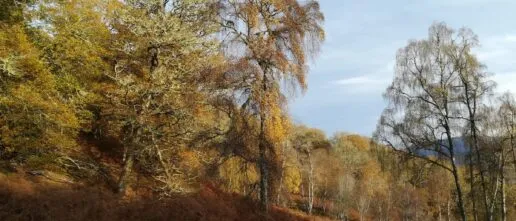
Scottish Highlands
Scotland is renowned for its distinctive and diverse range of landscapes, which are a significant part of the country’s natural and cultural heritage. The environment has been shaped by interconnected human and natural processes over thousands of years and includes built heritage, ancient woodlands, wildlife and native species, art and literature, folklore, language and traditions […]
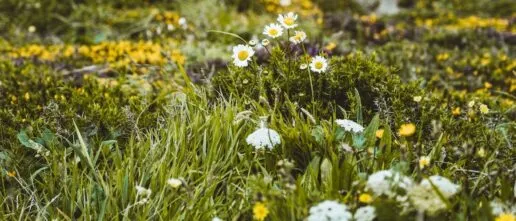
Oxfordshire
With its active network of nature recovery groups, Oxfordshire presents a unique opportunity to test and showcase a portfolio of different ecosystem restoration strategies, to become a model county for nature recovery. Our work in this landscape aims to build a community of practice between the University and local practitioners, and will also form a […]

Ghana
Initiatives, including the Ghana Cocoa Forest REDD+ Programme and Cocoa and Forests Initiative, need to be centred around local communities to ensure they succeed and deliver equitable outcomes.

